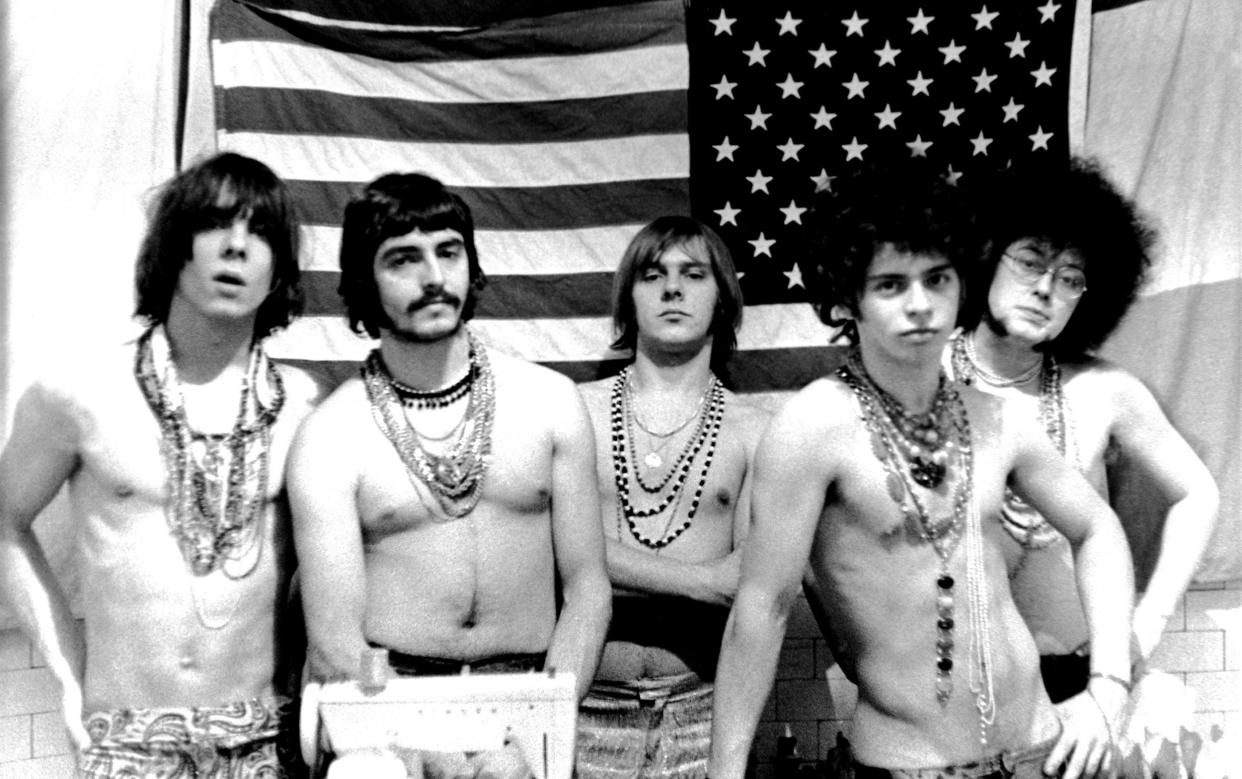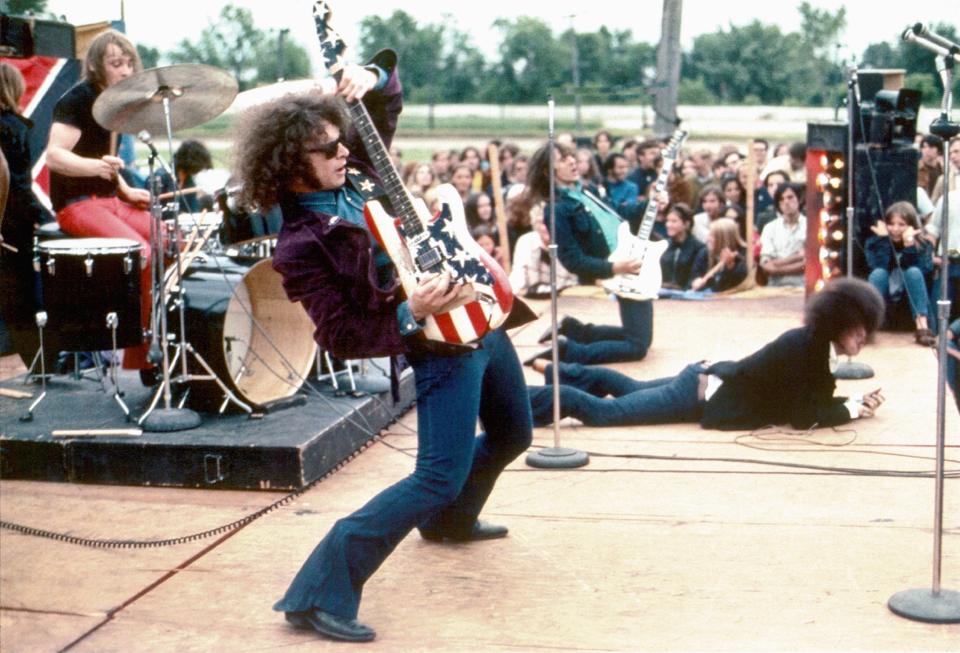Wayne Kramer, guitarist with revolutionary rockers MC5 – obituary

- Oops!Something went wrong.Please try again later.
- Oops!Something went wrong.Please try again later.
- Oops!Something went wrong.Please try again later.
- Oops!Something went wrong.Please try again later.
Wayne Kramer, who has died aged 75, was the guitarist and co-founder of MC5, the Detroit band who fused ear-shredding garage rock and revolutionary politics, inspiring the likes of the Clash and a whole legion of bands who enlisted in the 1970s punk movement; with lines like “I’m sick and tired of paying these dues/ And I’m sick to my guts of the American ruse” they attacked the establishment against a backdrop of crunching riffs.
Critics lionised MC5 for their influences – Marxism, the Beats, the anti-racist White Panther Party (co-founded by their manager, John Sinclair) – but their personal views were less clear-cut, and Kramer admitted that their politics stretched no further than “not wanting to get up in the morning and have a real job”.
He was born Wayne Stanley Kambes in Detroit on April 30 1948; his parents divorced after his heavy-drinking father walked out on the family, and he was abused by his stepfather, alleviating his pain and trauma by losing himself in music, particularly Chuck Berry and Duane Eddy.
He saved up his pocket money to buy a guitar and began playing with his friend Fred “Sonic” Smith, another Berry fan. Aged 17, Wayne legally changed his name to Kramer: “The perfect way to finally get back at my spineless father for running out on us,” he would write in his 2018 memoir, The Hard Stuff: Dope, Crime, the MC5, and My Life of Impossibilities.
The pair played together and separately in various outfits until they were joined by Rob Tyner on vocals, Michael Davis on bass and Dennis Thompson on drums and called themselves Motor City 5, after their home town, soon shortened to MC5.
They started out playing covers but began writing their own incendiary material, stirred by the race riots that tore Detroit apart in 1967. Kramer later spoke of the “rage that you could feel when you drove across the city”.
John Sinclair became their manager and they began playing the Grande Ballroom in Detroit, which was where they recorded their 1969 debut album, Kick Out the Jams. Tyner’s rallying cry, “Kick out the jams, m-----f-----s!” saw the record banned by many shops – though it reached No 30 – and led to the band being dropped by their label, Elektra.

Two proto-punk studio albums followed on Atlantic, Back in the USA in 1970 and High Time the following year, both of them bristling with rage and buzzsaw riffs. But neither even scraped into the Top 100, and Atlantic dropped the band – who by now were strung out on hard drugs and exhausted by relentless touring.
They fell apart during 1972, and when they reunited for a farewell gig at the Grande on New Year’s Eve they played to a few dozen people; the drug-addled Kramer left the stage after a few songs.
He fell into what he later described as the life of “a small-time Detroit criminal”, and in 1975 he was arrested after selling drugs to undercover police and sentenced to four years in prison (where he was reunited with Michael Davis, also incarcerated for drugs offences).
On his release Kramer played with Was (Not Was) and the band Gang War with Johnny Thunders, and he went on to co-found the charity Jail Guitar Doors, which provides musical instruments for prisoners; its name was taken from the Clash song of that title, with its line: “Let me tell you ’bout Wayne and his deals of cocaine.”
He continued to struggle with drug addiction, but in the early 1990s the remaining members of MC5 reunited to celebrate the life of Rob Tyner, who had died of a heart attack in 1991 – Fred “Sonic” Smith would also die of heart trouble in 1994 – and went on to tour sporadically, often bolstered on stage by famous fans like Lemmy, Ian Astbury and Dave Vanian. A new album is due out this year, featuring Kramer and Thompson plus guest artists such as the Guns N’ Roses guitarist Slash.
Wayne Kramer married, first, the photographer Marcia Resnick; they divorced, and he is survived by Margaret Saadi, whom he married in 2003, and their son.
Wayne Kramer, born April 30 1948, died February 2 2024

